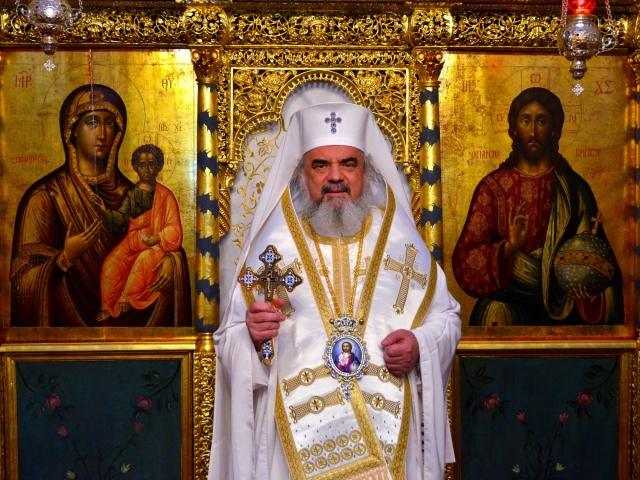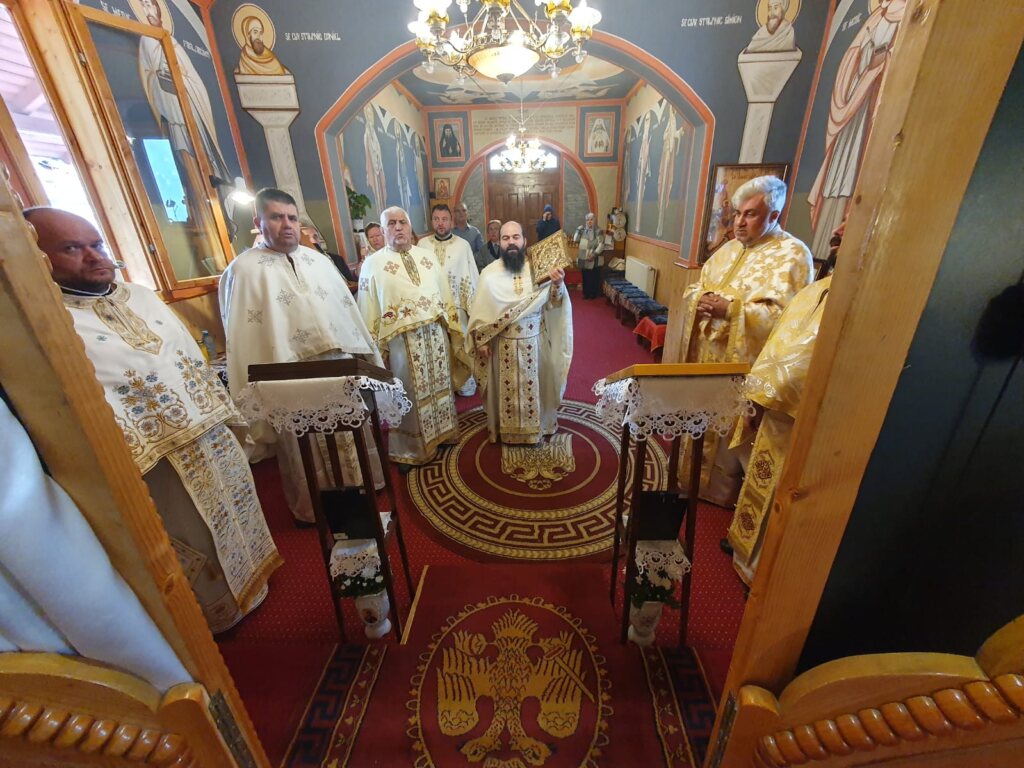On 29 September 2013, the 19th Sunday after Pentecost, the Gospel text presenting the Sermon on the mountain – love for enemies was read in all churches. His Beatitude Daniel, Patriarch of Romania delivered a sermon in the chapel of Saint Great Martyr George of the Patriarchal Residence, in which he showed the teaching of the gospel of the day.
“Today’s Gospel is the Gospel of the 19th Sunday after the Pentecost which shows us the love for one’s enemies which makes man like God. This Gospel shows three great teachings, namely that first of all we must do the people what we would like them to do to us, not what they do to us, because rather often they do harm to us. Secondly, Christ, our Lord, urges us to love our enemies, to do good and to lend without asking anything back. Thirdly, the Gospel shows us that whoever is good and merciful, even to his enemies, resembles God; he becomes son of God according to grace. The ultimate urge of the Gospel is “Be merciful as your Father is”, His Beatitude explained.
Kindness and mercy are the healthy aspect of the human nature, while wickedness and hate represent the decayed state
His Beatitude Patriarch Daniel emphasised in his sermon the fact that the Saviour urged to love even those who show hate to their fellow beings: “We notice in the Saviour’s speech that He does not command love for love, but love even for those who show hate to their fellow beings. The unnatural aspect of the Saviour’s commandment shows us, in fact, that our human selfish nature, which we consider natural, is not natural. For the sinful man it is natural to love the one who loves him, but to love the one whom he hates is not natural, which means that the sinful selfish nature, which mixes good and evil is not the healthy one, but the sick one suffering from sin. Why that? It is because man was created in the image of the Good Merciful God, and kindness and mercy are the healthy aspect of the human nature, while wickedness and hate are not the normal state of the human nature, but the decayed state”.
The commandment of love for one’s own enemies is unique, typical for the Gospel of Christ
The Patriarch of the Romanian Orthodox Church has also spoken about the unique aspect of this commandment to love one’s own enemies which is typical to the Gospel of the Saviour and emphasised that in order to reach the resemblance with God we must overcome wickedness through kindness and hate through merciful love.
“The Christian man who takes the way of holiness takes the way of the resemblance to God only to the extent to which he does not answer with evil to evil, with hate to hate, but does away with wickedness through kindness and hate through merciful love. Thus, he becomes to be like God. Therefore, the Gospel shows us a discrepancy between the nature that we consider normal of the ordinary sinful man and the nature that God wishes as our raising from sin and return to the state before falling into sin and especially to the state similar to that of Christ who has not revenged Himself against those who harmed Him but prayed for them saying “Forgive them Father! They don’t know what they are doing”, when they were crucifying Him on the cross of Golgotha”, His Beatitude said.
The sinful man cannot accomplish the commandment of love for enemies without praying to the merciful Christ
The Primate of the Romanian Orthodox Church showed that the commandment of love for one’s own enemies cannot be accomplished without the help of Jesus Christ, our Saviour.
“The commandment of love for one’s own enemies is hard to accomplish, but as the Holy Fathers of the Church say, Christ, our Lord, does never ask man what he cannot do. Even if he cannot do what Christ asks him to by his own means, man can accomplish it if he prays Christ to help him. The sinful man cannot accomplish the commandment to love his own enemies without praying the merciful Christ. This prayer accompanied by fasting and repentance changes man and makes him merciful”, His Beatitude pointed out.
Nobody can love one’s own enemies unless he has the love of Christ in him
His Beatitude Patriarch Daniel has also shown that this commandment of loving one’s own enemies can be accomplished only through the living permanent relationship with Christ, our Lord.
“The one who forgives and gets rid of the memory of the evil that somebody did to him and does away with his desire to revenge himself becomes merciful like God who is good also to those who are bad. Thus, this Gospel of the love for one’s own enemies is a Gospel in which man gets rid of the evil remained in his cognitive affective memory renewing himself by getting the merciful love of Christ as a result of the prayer. Nobody can love the enemies unless he has the love of Christ for enemies in him which is acquired through prayer, through the vivid permanent relationship with the merciful Christ”, His Beatitude said.
“To love one’s own enemies is to do away with wickedness, with the desire to answer with evil to evil. Today’s Gospel is the Gospel of the experience of the grace of merciful love of Christ who changes the human decayed nature and so, the conclusion of the Gospel, the urge of the Saviour “be merciful as your Father is” who shows us, in fact, that the Christian life is a programme of changing, renewal, progressing on the way leading us to the resemblance to the Merciful God” the Patriarch of Romania added.
The Gospel text the Church scheduled to read today is part of the Holy Gospel according to Luke, chapter 6:31-36.






